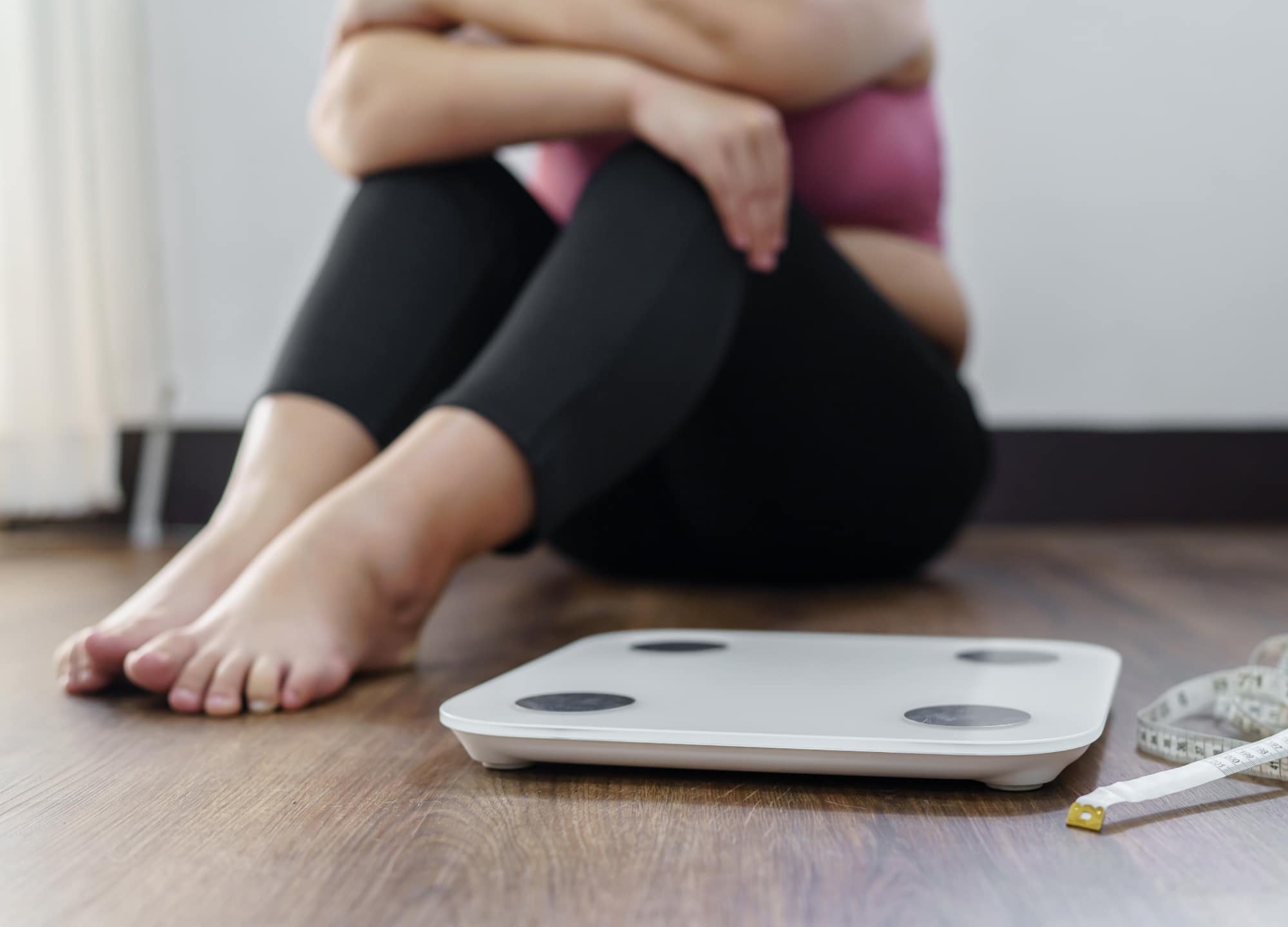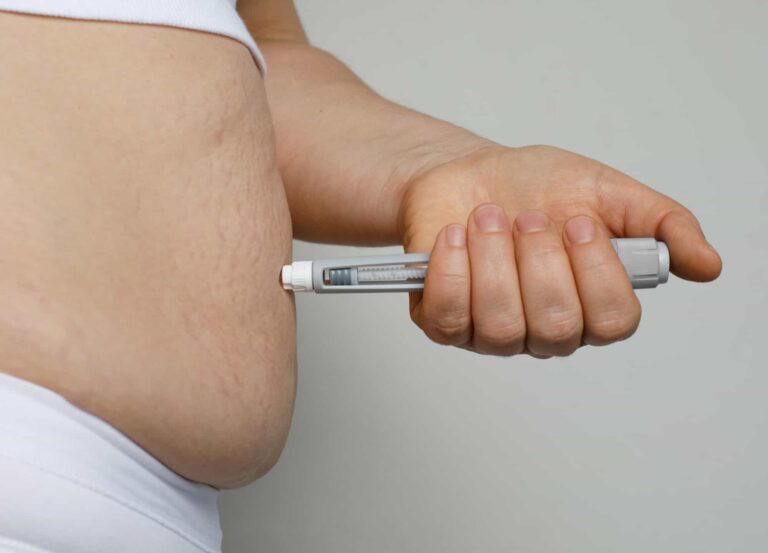Featured Experts
Dr. Brandon Richland, a board-certified plastic surgeon in Fountain Valley, California
Dr. Sharon Giese, a board-certified plastic surgeon in New York City
The way many people talk about it, Ozempic sounds like a magic bullet for weight loss: Do your weekly injection, watch the weight fall off, enjoy life. This, predictably, has led to a flood of people seeking out the medication and others like it, which work by mimicking GLP-1, a hormone naturally found in the body that helps boost feelings of fullness and dial down cravings.
But not everyone on a GLP-1 medication has seen the dramatic weight loss that the headlines might have you think is par for the course—with some people reporting that they’ve actually experienced weight gain after taking it. So is Ozempic not working for you? Here’s what might be happening.
How semaglutide works
First, it’s important to know how Ozempic—the brand name for semaglutide (and a medication FDA-approved to treat type 2 diabetes), which is also sold as Wegovy (approved to treat obesity)—actually works in the body. First, this hormone “slows your stomach emptying, so you feel full faster and longer,” says Dr. Sharon Giese, a board-certified plastic surgeon in New York City. On top of that, it tells your brain that you’re satiated, so you don’t feel deprived.
It effectively removes the challenges of a typical diet. When you restrict your calories for an extended period of time, aka go on a diet, “there’s something really powerful about that feeling of deprivation,” says Dr. Giese. “Without the aid of medication that helps to make you feel full and satiated, it’s really hard to stick to it.” As a result, it’s hard to get long-term significant weight loss the old-fashioned way, she says.
Because of this, semaglutide is particularly effective for weight loss; one study in the New England Journal of Medicine found that more than half the patients lost 15% or more of their body weight.
Why is semaglutide not working for me?
Here’s the thing: in that same study, roughly 14% of people reduced their body weight by only 5% or less—making up a group of people called nonresponders. This happens in practice too. “There are occasionally some non- or minimal responders,” says Dr. Brandon Richland, a board-certified plastic surgeon in Fountain Valley, California. “It’s important to understand that each individual’s body reacts differently to medications.” And if slow or nonexistent weight loss has led you to wonder whether you’re immune to Ozempic’s powers, here are some potential answers.
You may have insulin resistance
Insulin resistance means that your body doesn’t have a strong response to insulin, which helps regulate blood sugar levels—and is the thing that Ozempic actually targets. In her practice, Dr. Giese has found that patients who are slow to lose weight tend to have insulin resistance. “It’s not 100%, but in general, I’ve been testing these patients for insulin resistance,” she says.
You’re not adjusting your lifestyle
Despite the rumors, Ozempic is not the be-all and end-all for weight loss. To get the best results, you have to make lifestyle changes too—which is why many patients find it helpful to be in a more overall health program that allows access to a nutritionist or dietitian. For one, “overeating and lack of portion control are common issues that can negate the benefits of semaglutide,” says Dr. Richland. (For instance, even if you don’t have a feeling of hunger, you still might reach for calorie-dense, low-nutrient foods, like processed foods.)
The same goes for physical activity. A sedentary lifestyle can also get in the way of meaningful weight loss, says Dr. Richland. Ultimately, GLP-1s like Ozempic need to be paired with proper diet, healthy eating habits, and regular exercise, in order to achieve the best results—not to mention long-term weight management.
You’re not dosing right
How are you getting your weight-loss drug? Some people have started DIY-ing it, enough that the U.S. Food and Drug Administration (FDA) recently released an alert about people overdosing with semaglutide from compounded pharmacies; plus the semaglutide, legally, can’t be the same medication as what’s commercially available. (Also, medications from compounding pharmacies aren’t subject to FDA review, upping their risk.)
As a result, “there are a lot of people who are self-dosing or signing up with programs that don’t have a medical director or an involved person who’s following up with the patients,” says Dr. Giese. So they’re just winging it—whereas semaglutide is intended to be dispensed with a gradual increase in dosage. (This is meant to maximize results while minimizing side effects, which can include nausea and vomiting.)
This means you might be on a dose of Ozempic that’s too low—or if you scale up to higher doses too quickly, you might have side effects so intense that you don’t stick with it.
It’s too soon to see results
Ozempic isn’t an instant fix; while you might feel its effects quickly, weight loss can take more time. “Most patients start seeing weight-loss results within the first four to six weeks of taking semaglutide,” says Dr. Richland. “This period allows the body to adjust to the medication’s effects on hunger and metabolism.”
And again, that’s where oversight is crucial: If you’re on a certain dosage and not seeing results, then your doctor can modify your plan accordingly. “Individual responses can vary, so regular monitoring and adjustments are essential,” he says.
What you can do if semaglutide isn’t working
First, if you find that Ozempic is not working to help you lose weight, talk to your healthcare provider to ensure you’re taking the medication correctly and following the recommended diet and exercise plan, says Dr. Richland. Then “we gradually increase the semaglutide dosage up to the maximum of 2.4 mg a week, monitoring progress closely,” he says.
Among her patients with suspected insulin resistance, Dr. Giese recommends a low-glycemic diet, which can help keep blood sugar under control and potentially boost insulin sensitivity—making the semaglutide more effective.
If you don’t see any weight loss progress after three to four months at the max dosage, “we might then consider switching to tirzepatide,” says Dr. Richland. “This medication [available under the brand names Mounjaro and Zepbound] offers an additional mechanism of action that can be effective for those who don’t respond well to semaglutide.” (In addition to the GLP-1 agonist, it contains a GIP agonist, meaning it mimics yet another hunger-related hormone in order to amplify the effects.)
And if you find that you’ve hit a weight loss plateau and semaglutide’s not working anymore—but it did, at one point—then tirzepatide might be your best bet as well. Plus it leads to significantly more weight loss than semaglutide, according to a study that compared them head-to-head. The bottom line? “Maintaining realistic expectations is crucial for sustained progress,” says Dr. Richland.











